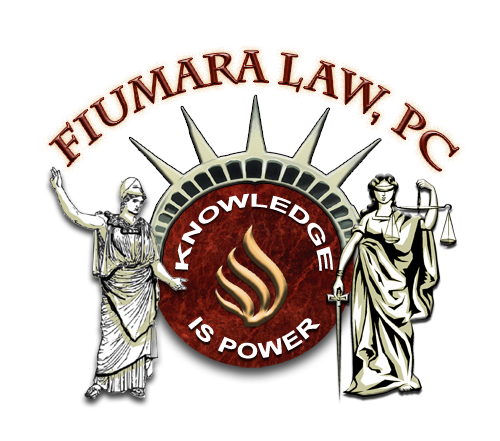With the exception of the right to a jury trial, a delinquency jurisdictional hearing in many counties in California is virtually the same as a criminal trial.
Delinquency proceedings concern minors (under the age of 18) who are alleged to have participated in acts that would be crimes if they were committed by adults.
CRIMES
Any act which would be a crime, if committed by an adult, subjects the minor to the jurisdiction of the Juvenile Court’s Delinquency System. This includes the most serious felonies
(murder, armed robbery, forcible sex offenses, gang enhancements, arson (See our Adult Section under Arson Crimes, etc.) to misdemeanors such as
public intoxication, vandalism and fighting and
driving under the influence of alcohol or drugs. In short, all offenses proscribed by the Penal Code.
Some of the most common types of offenses, which bring juveniles before the system, are
property crimes (
vandalism and theft),
sex offenses (intercourse, vaginal penetration by fingers or other objects),
automobile offenses such as
drunk driving, “joy riding”, car theft and reckless driving, and the use of alcohol and drugs. For the most serious offenses, the district attorney may even seek to have the minor tried as an adult. This determination is made by the court at a “Fitness Hearing.” If the Juvenile is determined to be “fit” (i.e., should not be treated as an adult) he or she remains in the juvenile system.
Procedure
As with adults, the first step is usually apprehension by the police. A minor may be detained at a juvenile hall or released to the custody of a parent or guardian. The minor must be advised by a police officer that anything the minor says can be used against him or her. The officer must also advise the minor of the constitutional rights to remain silent and to have an attorney present (”
Miranda” warnings).
The Judge or Referee will decide whether or not the juvenile is to be Detained in Juvenile Hall, will act as the trier of fact if there is a “Jurisdictional Hearing” (trial) and will conduct the “Dispositional Hearing” (sentencing) if the Petition is “Sustained” or upheld (similar to a conviction).
There may be at least 3-4 court appearances required before your child’s case is resolved. Your child must be present at all court appearances and should be accompanied by a parent or guardian. If for some reason your child cannot attend the court hearing we advise you to immediately call your attorney to avoid having a warrant go out for your child’s arrest issued by the court.
POSSIBLE DISPOSITIONS
If the Petition is
not sustained (similar to an acquittal), the minor leaves the system. If the Petition
is sustained, one of the following may occur.
- The matter may be dismissed by the court.
- The minor may be given a six-month probation with no wardship.
- The minor may be put on home probation.
- The minor may be placed in an out-of-home probation (probation camp, etc.)
- A minor may be held in the California Department of Corrections and Rehabilitation, Division of Juvenile Justice (DJJ), which is like prison. If the offense occurred while the juvenile was under 16 years of age, he may be held in DJJ until the age of 21 or, if it occurred while the juvenile was over the age of 16, he may be held until the age of 25.
Probation Violations
If a child violates his terms of probation, he may be re-detained in Juvenile Hall and cited to appear in court. This is treated like a new case and the process begins all over again.
Sealing of Records
A minor is entitled to have juvenile court proceedings sealed after the minor reaches age 18. You must make application to seal records – it does not happen automatically. When your case is dismissed, ask the receptionist in the waiting room, or telephone probation at (707) 537-6229, for an application to seal your record.
THE PROCESS OF A JUVENILE CRIMINAL CASE / TYPES OF HEARINGS
If your child has been arrested, he or she can either be cited and released or detained at a juvenile detention facility. If your child is in custody, he or she will be arraigned in juvenile court within 48 hours, excluding weekends and holidays.
-
PETITION / JUVENILE ARRAIGNMENT
The district attorney usually files a Petition (similar to a complaint) and the matter is set for a juvenile court hearing. The probation department assigns an officer who will make the most important recommendations. The matter is presided over by a Superior Court Judge or a Juvenile Court Referee.
If your child is not in custody, his first court date is called arraignment. Your child’s attorney will often enter a denial of the petition and set a pretrial conference and a court date.
-
JUVENILE DETENTION HEARING
- It is reasonably necessary for the protection of the person or property of another that your child be detained.
- It is a matter of immediate and urgent necessity for the protection of your child that he or she be detained.
- Whether your child is a flight risk and will not appear in court.
- Whether your child has violated a prior court order.
If your child is in custody, his or her first court date is called a detention hearing. At the detention hearing the juvenile referee, or juvenile judge, will make the determination on whether to continue to detain your child pending adjudication of the charges. The juvenile referee, or juvenile judge, will have input from the juvenile probation department, as well as from the juvenile deputy district attorney and juvenile defense attorney.
The criteria used by most juvenile judges on whether to continue to detain your child pending adjudication are as follows:
At the juvenile detention hearing your child’s attorney will enter a plea admitting or denying the petition. Most attorneys will deny the petition pending evaluation of the state’s case.
If your child is detained, he or she has a right to a speedy trial to take place within 15 court days of the arraignment. If your child is not in custody, the speedy trial requires an adjudication date within 30 calendar days.
Our attorneys work hard to convince the court (usually over the strong objections of prosecutors) to release your child on community detention or “house arrest,” where your child would be confined to his/her parent’s/guardian’s home and monitored with an electronic ankle bracelet.
-
JUVENILE PRETRIAL DATE
The pretrial date is set up so the attorneys of both parties can discuss a possible resolution to the case and to discuss other outstanding discovery issues. If your child is in custody, this must be set up the week following arraignment unless time is waived. In other words, the pretrial date or even the court trial date, can be set at a much later date if your child’s attorney and your child agree to a later date. If your child is not in custody, his/her pretrial must generally be scheduled two to three weeks after the arraignment unless time is waived. Many juvenile judges participate in a discussion of a resolution through a private conference in the Judge’s chambers.
-
The Fitness or Waiver Hearing
If your child is at least 14 years old, the district attorney may ask that your child be tried in adult court. At the fitness hearing the judge will decide whether your child will be tried in adult court or juvenile court. If your child is ruled “unfit” for juvenile court, he or she will be tried in adult court. If your child is younger than 14, there will be no fitness hearing.
-
JUVENILE COURT DATE/TRIAL
Unlike adult court, your child is not eligible to a jury trial. In lieu of twelve jurors, the juvenile court trials are done by a judge or commissioner who acts as both judge and trier of fact. Therefore, it is very important that you have a lawyer that is familiar with the juvenile court proceedings and the juvenile court judges. Under Penal Code section 170.6, your child has a right to an unbiased judge. Your child has to challenge the Judge’s impartiality immediately. Otherwise, he or she can be deemed to have waived that right. Only an experienced juvenile attorney will know which juvenile judges, or juvenile commissioners are fair.
Click here to read about the Juvenile Programs – Jail Alternatives


